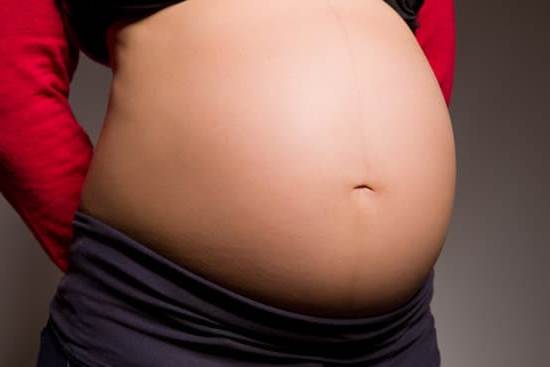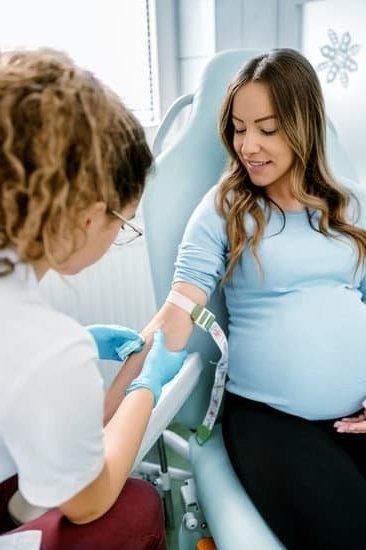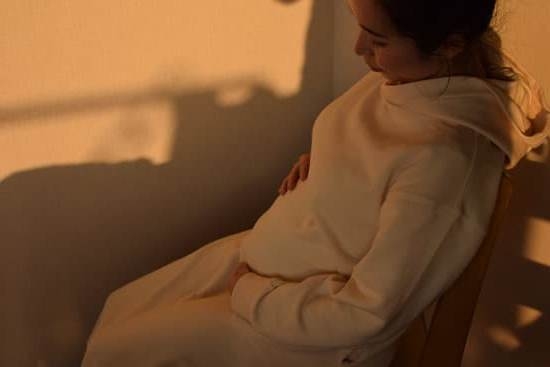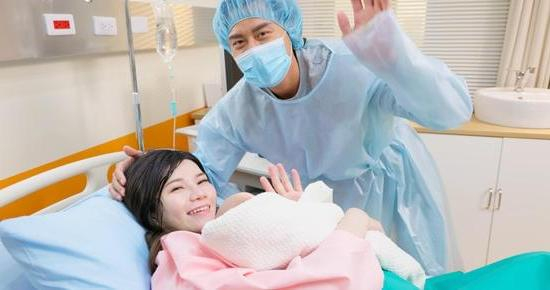Pregnancy is a miraculous journey that brings about numerous changes to a woman’s body, both physically and emotionally. One of the most anticipated aspects of pregnancy is when the noticeable physical changes begin to show. In this article, we will delve into the concept of pregnancy and explore the various transformations that take place in a woman’s body as she embarks on this incredible journey.
The concept of pregnancy begins with the fertilization of an egg by a sperm, leading to the formation of an embryo. As the embryo develops, it triggers a series of physical and hormonal changes in the mother’s body, marking the onset of pregnancy. Understanding these changes is crucial for expectant mothers as they navigate through the various stages of their pregnancy.
In this section, we will discuss how pregnancy impacts a woman’s body and elaborate on the early signs and symptoms that signify the beginning of this remarkable journey. We will also explore how these changes affect women differently and examine when a pregnant woman typically starts to show signs of her pregnancy. Join us as we unravel the mysteries surrounding when pregnancy truly starts to become visible.
Understanding the First Trimester
During the first trimester of pregnancy, a woman’s body undergoes significant changes as it prepares to nurture and support a growing embryo. Within the first weeks following conception, the fertilized egg attaches itself to the uterine wall and begins to develop into an embryo. This period is crucial for the formation of vital organs and body systems. Here are some key details about the first trimester development:
- Embryo Development: During the first trimester, the embryo rapidly grows from a cluster of cells into a recognizable human form. By the end of the third month, all major organs have begun to form. This stage is also characterized by rapid cell growth and differentiation.
- Early Signs of Pregnancy: It is common for women to experience various symptoms in early pregnancy due to hormonal changes and physical adjustments in their bodies. Some common signs include nausea or vomiting (morning sickness), breast tenderness, fatigue, and frequent urination. These symptoms can vary from woman to woman and may not occur at all in some cases.
The first trimester marks an important phase in pregnancy as it sets the foundation for fetal development. Understanding these early stages can help expecting mothers better prepare for the physical changes ahead and seek appropriate prenatal care. As hormone levels continue to rise and the embryo develops, women may begin to notice subtle changes in their bodies that indicate the start of pregnancy showing, such as bloating or mild weight gain.
Changes in the Body
During pregnancy, a woman’s body undergoes a multitude of changes, both internally and externally. These changes are primarily driven by hormonal fluctuations and the physical development of the growing fetus. Understanding how pregnancy affects the body can help expecting mothers navigate through these transformations with greater ease.
Hormonal Changes
One of the most significant aspects of pregnancy is the hormonal changes that take place within a woman’s body. The surge in hormones, particularly estrogen and progesterone, plays a crucial role in preparing the body for pregnancy and supporting the developing fetus. These hormones contribute to various physical and emotional changes, such as heightened emotions, breast tenderness, and nausea.
Physical Transformations
Aside from hormonal shifts, pregnancy also brings about noticeable physical changes. The expanding uterus puts pressure on surrounding organs, which can lead to symptoms like frequent urination and digestive discomfort. Additionally, many women experience skin changes, such as darkening of the areolas and linea nigra (a dark line running from the navel to the pubic bone). As pregnancy progresses, women may also notice an increase in blood volume and swelling in their extremities.
Impact on Overall Well-Being
The combination of hormonal and physical changes during pregnancy can significantly impact a woman’s overall well-being. From fatigue and morning sickness to mood swings and food cravings, these alterations often require adjustments in daily routines. It is important for expectant mothers to prioritize self-care during this time, incorporating proper nutrition, rest, exercise, and stress management techniques into their lifestyle to mitigate discomfort and support a healthier pregnancy journey.
Understanding how pregnancy affects a woman’s body enables expectant mothers to anticipate these changes and seek necessary support from healthcare providers or maternal support groups. By staying informed about what to expect physically during pregnancy, women can better prepare themselves for this transformative period of their lives.
Weight Gain and Baby Bump
During pregnancy, a woman’s body undergoes significant changes, both internally and externally. One of the most eagerly anticipated physical changes is the appearance of the baby bump. This visible sign of pregnancy is often a source of excitement for expectant mothers and their families. But when exactly does a pregnant woman start to show? The timing can vary from woman to woman and is influenced by several factors.
Factors That Influence Pregnancy Showing
Several factors can influence when a pregnant woman starts to show. One of the primary factors is the individual’s body type and pre-pregnancy weight. Women with a smaller frame or lower body fat percentage may start showing earlier than those with a larger build. Additionally, the positioning of the uterus and abdominal muscles can also impact how soon the baby bump becomes noticeable.
When Does Pregnancy Start to Show?
Typically, first-time mothers may start to show later than women who have previously been pregnant. For first-time mothers, it is not uncommon for their baby bump to become noticeable around 12-16 weeks, while in subsequent pregnancies, the belly may start to protrude as early as 8-12 weeks. However, these timelines can vary widely among individuals based on genetic predispositions and other influencing factors.
Embracing the Changes
As an expecting mother begins to show signs of pregnancy, it can be a time filled with mixed emotions – excitement, anticipation, and sometimes even anxiety about body image changes. It’s essential for women to understand that every pregnancy is unique, and there’s no standard timeline for when they should start showing. Embracing these changes and focusing on the miracle of growing life within them can help alleviate any concerns about external appearance.
Differences in Pregnancy Show
When pregnancy starts to show can vary greatly among different women. Several factors contribute to when a pregnant woman begins to visibly display her pregnancy. One of the significant influences is a woman’s body type and pre-pregnancy weight.
Women with a smaller frame or those who were underweight before pregnancy may start showing earlier than women with a larger build or those who were overweight prior to conceiving. Additionally, genetics play a role in the timing of when a woman’s pregnancy becomes noticeable. If a woman’s mother or sisters started showing early in their pregnancies, there is a higher likelihood that she will also show early.
Another factor that affects when pregnancy starts to show is whether it is the woman’s first pregnancy or not. First-time mothers often take longer to show because their abdominal muscles are tighter compared to women who have had previous pregnancies. In subsequent pregnancies, these muscles have already been stretched and may not hold the uterus in as tightly, causing the belly to protrude earlier.
It’s also important to note that multiples, such as twins or triplets, can result in an earlier onset of pregnancy showing. When a woman is expecting more than one baby, her uterus expands more rapidly, leading to an earlier visible bump compared to a singleton pregnancy. Overall, while there are general timelines for when pregnancy starts to show, each woman’s experience will be unique based on various individual factors.
| Factor | Effect on Pregnancy Showing |
|---|---|
| Body type and pre-pregnancy weight | Women with smaller frame may start showing earlier; those with larger build may show later. |
| Genetics | If family members showed early in their pregnancies, there’s possibility of showing early too. |
| Multiples | Expecting more than one baby can result in an earlier onset of pregnancy showing. |
Psychological Impact
Pregnancy is a time of great joy and anticipation, but it can also bring about a range of emotions for expecting mothers. The psychological impact of pregnancy starting to show can be significant, as it represents the visible confirmation of the life growing within. Here are some key aspects to consider when exploring the emotional and mental effects of this milestone:
- Anticipation and Excitement: As a woman’s body begins to show signs of pregnancy, it can bring about feelings of excitement and anticipation. This visible reminder serves as a tangible symbol of the new life that is developing, and many women experience a deep sense of joy as they watch their belly grow.
- Body Image and Self-esteem: On the flip side, the changes in a woman’s body during pregnancy may also lead to insecurities or concerns about body image. Many women grapple with feelings of self-consciousness as their bodies start to change, especially if they gain weight in areas that are unfamiliar to them.
- Bonding with the Baby: For some expecting mothers, the physical manifestation of pregnancy can serve as a catalyst for bonding with their unborn child. Feeling the first kicks or seeing movements on their growing belly can create an emotional connection that strengthens throughout the pregnancy.
It’s important for expecting mothers to acknowledge and address any psychological impacts they may experience when pregnancy starts to show. Open communication with a trusted support system, whether it’s a partner, family member, or healthcare provider, can provide valuable emotional support during this transformative time.
Managing Pregnancy Symptoms
As a pregnancy progresses, many women eagerly anticipate the physical changes that will become more apparent as the baby grows. One of the most visible signs of pregnancy is the baby bump, which typically becomes noticeable around the second trimester. However, several factors influence when a pregnant woman starts to show.
It’s important to note that every woman’s body is different, and therefore, the timing of when a pregnancy starts to show can vary from one individual to another. Factors such as body type, muscle tone, and whether it’s your first pregnancy can all influence when you begin to visibly show. Generally, women with a smaller build or those who have been pregnant before may start showing earlier than others.
Additionally, hormonal changes and overall weight gain play a role in determining when a pregnancy starts to show. During the first trimester, hormonal shifts may lead to bloating and some initial weight gain, but the baby bump usually becomes more pronounced around 12-16 weeks of pregnancy. As the uterus expands and the baby grows larger, the belly will gradually become more evident.
Lastly, genetic factors also contribute to how soon a pregnant woman begins to show. If other female family members showed early during their pregnancies, there’s a higher likelihood that you may experience similar timing as well”.
| Factors Influencing When Pregnancy Starts to Show | Effect |
|---|---|
| Body type and muscle tone | Influence when a pregnant woman starts to visibly show |
| Hormonal changes and weight gain | Affects how soon a pregnancy bump becomes pronounced |
| Genetic factors | Contribute to how soon a pregnant woman begins showing |
Conclusion
In conclusion, the timing of when pregnancy starts to show varies from woman to woman. Factors such as body type, muscle tone, and whether it’s a first or subsequent pregnancy can all affect when a baby bump becomes noticeable. However, it’s important for expecting mothers to remember that every pregnancy is unique and the changes in their body are perfectly normal.
For many women, the physical changes of pregnancy can be both exciting and daunting. It’s common to experience a mix of emotions as the body undergoes such significant changes. Nonetheless, it’s essential to focus on the miracle of life growing inside and embrace this special time.
It’s also crucial for expecting mothers to take care of themselves physically and emotionally during this time. Seeking support from loved ones, connecting with other expectant mothers, and talking to healthcare providers about any concerns can help alleviate some of the stress that comes with these changes. Ultimately, when pregnancy starts to show is just one part of the journey towards welcoming a new life into the world.
Frequently Asked Questions
Can You Start Showing at 8 Weeks?
In most cases, pregnant women do not start showing until around 12 weeks, as the baby is still very small at 8 weeks. However, factors like body shape and muscle tone can affect when a woman starts showing.
What Is the Earliest You Start Showing in Pregnancy?
The earliest a woman may start showing in pregnancy is typically around 12-16 weeks. This is when the uterus begins to expand and move out of the pelvis, making the baby bump more noticeable. However, each woman’s body is different, so it can vary.
Why Is My Belly So Big at 6 Weeks Pregnant?
A big belly at 6 weeks pregnant may be due to bloating rather than actual growth of the baby. Hormonal changes in early pregnancy can cause increased gas and water retention, leading to a larger appearance of the belly. It’s important to remember that every woman’s body is unique and will experience pregnancy differently.

Welcome to my fertility blog. This is a space where I will be sharing my experiences as I navigate through the world of fertility treatments, as well as provide information and resources about fertility and pregnancy.





